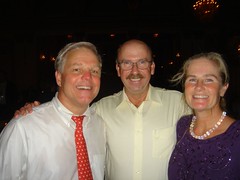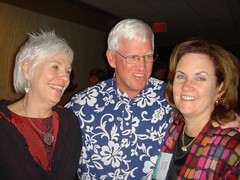I'm not sure which is more disturbing. The thought that I successfully
navigated my dissertation because my committee didn't know about this.
Or that they knew full well and let me graduate anyway.
Regardless, for any of you who need to decipher academic writing, this will prove helpful.
Translations of phrases often seen in dissertations and scholarly articles
- “It has long been known” … I didn't look up the original reference.
- “A definite trend is evident” … These data are practically meaningless.
- “While it has not been possible to provide definite answers to the
questions” … An unsuccessful experiment but I still hope to get it
published.- “Three of the samples were chosen for detailed study” … The other results didn't make any sense.
- “Typical results are shown” … This is the prettiest graph.
- “These results will be in a subsequent report” … I might get around to this sometime, if pushed/funded.
- “In my experience” … Once.
- “In case after case” … Twice.
- “In a series of cases” … Thrice.
- “It is believed that” … I think.
- “It is generally believed that” … A couple of others think so, too.
- “Correct within an order of magnitude” … Wrong.
- “According to statistical analysis” … Rumor has it.
- “A statistically-oriented projection of the significance of these findings” … A wild guess.
- “A careful analysis of obtainable data” … Three pages of notes were obliterated when I knocked over a glass iced tea.
- “It is clear that much additional work will be required before a
complete understanding of this phenomenon occurs” … I don't
understand it.- “After additional study by my colleagues” … They don't understand it either.
- “Thanks are due to Joe Blotz for assistance with the experiment and
to Cindy Adams for valuable discussions” … Mr. Blotz did the work and
Ms. Adams explained to me what it meant.- “A highly significant area for exploratory study” … A totally useless topic selected by my committee.
- “It is hoped that this study will stimulate further investigation in this field” … I quit.
By terrywfrazier@gmail.com. [b.cognosco]



